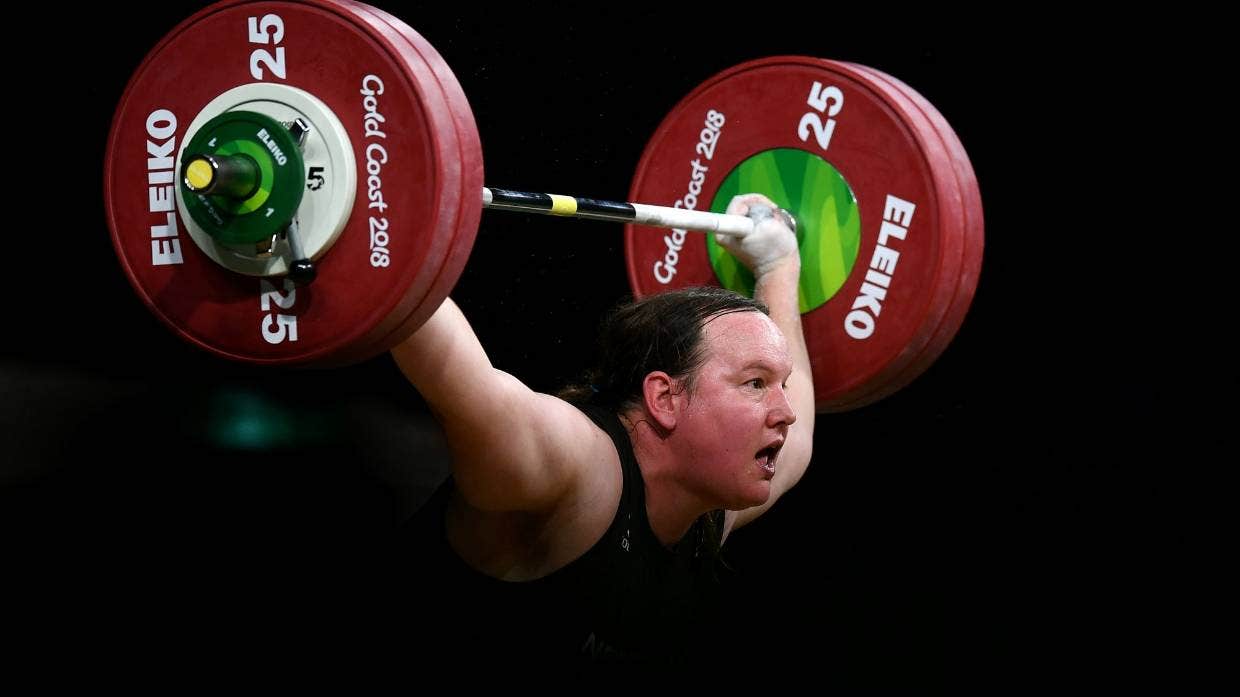New Zealand weightlifter Laurel Hubbard will become the first transgender athlete to compete at the Olympic Games in Tokyo next month.
Hubbard was named to represent NZ at the postponed 2020 Tokyo Olympics on Monday in the women’s super heavyweight category.
She was named in a five-strong New Zealand weightlighting team, alongside Kanah Andrews-Nahu (women’s -87kg), Megan Signal (women’s -76kg), David Liti (men’s +109kg) and Cameron McTaggart (men’s -81kg).
Hubbard, 43, transitioned in 2012 and became the first transgender athlete to represent New Zealand at the Commonwealth Games in 2018.
She won silver at the 2017 world championships and was sixth in 2019 after suffering a major injury while competing at the 2018 Commonwealth Games in Australia.
“I am grateful and humbled by the kindness and support that has been given to me by so many New Zealanders,” Hubbard said.
“When I broke my arm at the Commonwealth Games three years ago, I was advised that my sporting career had likely reached its end. But your support, your encouragement, and your aroha carried me through the darkness.
“The last eighteen months has shown us all that there is strength in kinship, in community, and in working together towards a common purpose. The mana of the silver fern comes from all of you and I will wear it with pride.”
A New Zealand Olympic Committee statement said Hubbard had made a remarkable come-back since her injury and had performed strongly since returning to competition in 2019.
Hubbard had been confirmed eligible having met the IWF, IOC and NZOC eligibility criteria, including IWF eligibility criteria for athletes who transition from male to female based on IOC Consensus Statement guidelines.
NZOC chief executive Kereyn Smith said Hubbard would be welcomed to the New Zealand team.
“As well as being among the world’s best for her event, Laurel has met the IWF eligibility criteria including those based on IOC Consensus Statement guidelines for transgender athletes.
“We acknowledge that gender identity in sport is a highly sensitive and complex issue requiring a balance between human rights and fairness on the field of play.
“As the New Zealand Team, we have a strong culture of manaaki and inclusion and respect for all. We are committed to supporting all eligible New Zealand athletes and ensuring their mental and physical wellbeing, along with their high-performance needs, while preparing for and competing at the Olympic Games are met.”
Olympic Weightlifting New Zealand president Richie Patterson (a former Commonwealth Games champion lifter and three-time Olympian) said Hubbard had shown “grit and perseverance in her return from a significant injury and overcoming the challenges in building back confidence on the competition platform.
”Laurel is an astute student of the sport and technically very good with the lifts. We look forward to supporting her in her final preparations towards Tokyo.”
Under IOC guidelines, issued in November 2015, athletes who identify as female can compete in the women’s category provided their total testosterone level in serum is kept below 10 nanomoles per litre for at least 12 months, and cannot change to compete again as a man.
However, there has been a heated debate in sporting and scientific circles over trans athletes having an ‘unfair’ advantage over other women.
Belgian weightlifter Anna Vanbellinghen believes Hubbard maintains an unfair advantage.
Vanbellinghen, who competes in the same +87kg division as the New Zealander, stressed that she fully supports the transgender community and that her comments were not a personal criticism of Hubbard.
“I am aware that defining a legal frame for transgender participation in sports is very difficult since there is an infinite variety of situations, and that reaching an entirely satisfactory solution, from either side of the debate, is probably impossible,” Vanbellinghen said recently.
“However, anyone that has trained weightlifting at a high level knows this to be true in their bones: this particular situation is unfair to the sport and to the athletes.”
New Zealand will field its biggest ever weightlifting team at an Olympic Games.
All five are new to the Olympic arena, but Liti, 24, is the 2018 Commonwealth Games champion.
The 24-year-old said it was “a dream come true’’ to be named for Tokyo.
A huge amount of hard work, tears, blood, sweat and dedication has gone into getting me here, and it’s a privilege to represent my family, country and heritage.
“I can’t wait to get there and compete, I’ve been working towards this moment for so long it’s hard to believe it’s almost here.”
The selection of the weightlifters takes the total number of athletes selected to the New Zealand Olympic team to 133.



